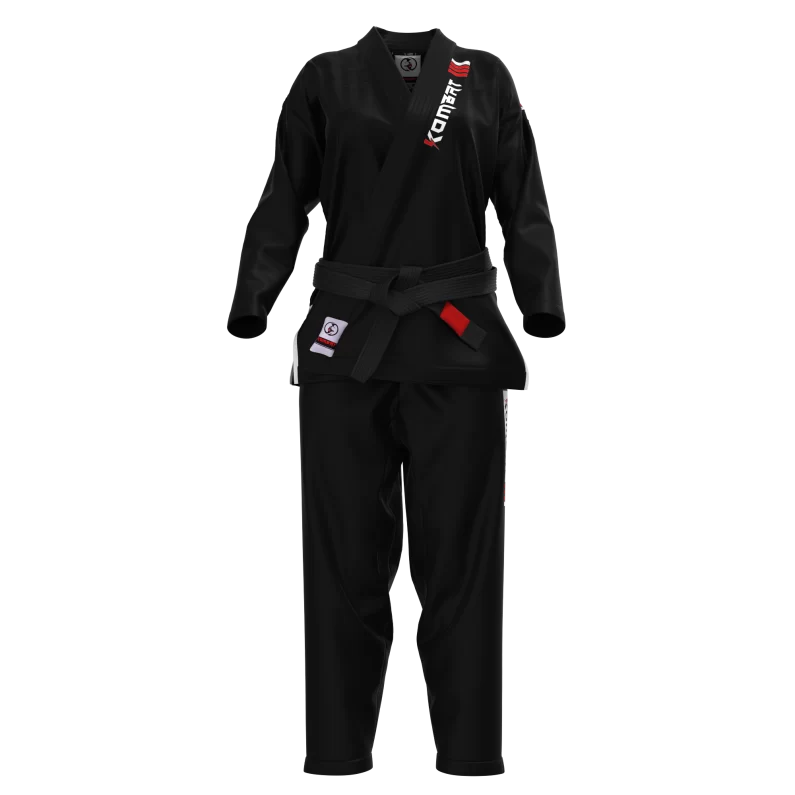BJJ is a martial art and combat sport that emphasizes grappling and submission holds on the ground. Due to its efficiency and usefulness in actual self-defense situations, this Brazilian-born technique has become incredibly popular all over the world. In recent years, gi jiu jitsu has also become a highly competitive sport with its own set of rules and championships. This article delves into the competitive aspect of Brazilian Jiu-Jitsu, exploring its rules, strategies, and the benefits it offers to practitioners.
Table of Contents
- Introduction
- Understanding the Basics of Brazilian Jiu-Jitsu
- The Evolution of BJJ Competitions
- Key Rules and Regulations
- Strategies for Success in BJJ Competitions
- Benefits of Competitive Brazilian Jiu-Jitsu
- Training Tips for Aspiring Competitors
- Overcoming Challenges in BJJ Competitions
- Famous BJJ Competitors and Their Achievements
- The Future of Brazilian Jiu-Jitsu Competitions
- Conclusion
- Frequently Asked Questions (FAQs)
1. Introduction
Brazilian Jiu-Jitsu has evolved from its origins as a self-defense system into a dynamic and widely recognized competitive sport. gi jiu jitsu competitions showcase the skills and mastery of practitioners who strive to outmaneuver their opponents and secure victory.
2. Understanding the Basics of Brazilian Jiu-Jitsu
To comprehend the competitive aspect of BJJ, it is crucial to grasp the fundamentals of the martial art itself. BJJ focuses on ground fighting, utilizing various positions, transitions, and submission holds to gain dominance over an opponent. Practitioners aim to force their adversaries into a state of submission through joint locks or chokes. The sport requires a combination of physical and mental strength, technical proficiency, and strategic thinking.
3. The Evolution of BJJ Competitions
BJJ competitions have witnessed significant growth and evolution over the years. What began as local challenge matches in Brazil has transformed into large-scale tournaments, attracting competitors from around the globe. Prominent competitions such as the International Brazilian Jiu-Jitsu Federation (IBJJF) World Championships and the Abu Dhabi Combat Club (ADCC) Submission Wrestling World Championship showcase the highest level of skill and provide a platform for aspiring athletes to prove themselves.
4. Key Rules and Regulations
BJJ competitions adhere to specific rules and regulations to ensure fair play and the safety of participants. These rules dictate acceptable techniques, prohibited moves, scoring criteria, and time limits for matches. While the rules may vary slightly between different organizations and tournaments, they generally prioritize control, submission attempts, and positional dominance.
5. Strategies for Success in BJJ Competitions
Achieving success in BJJ competitions requires a combination of technical proficiency, physical conditioning, and effective strategies. Competitors must focus on developing their strengths while addressing their weaknesses. Strategies may involve studying opponents’ tendencies, capitalizing on opportunities, and adapting to various situations during a match. Mental fortitude, perseverance, and adaptability play crucial roles in achieving victory.
6. Benefits of Competitive Brazilian Jiu-Jitsu
Participating in BJJ competitions offers numerous benefits beyond the mat. It builds character, discipline, and self-confidence. Competitors learn to manage stress, handle pressure, and overcome adversity. Additionally, the competitive environment fosters camaraderie and the formation of lifelong friendships among practitioners. BJJ competitions also serve as a platform to showcase skills, gain recognition, and open doors to sponsorship opportunities.
7. Training Tips for Aspiring Competitors
For those aspiring to compete in BJJ, dedicated training is essential. Regular practice, both in technique and conditioning, forms the foundation for success. Seeking guidance from experienced instructors, studying video footage of matches, and participating in simulated competitions are valuable training methods. Developing a well-rounded skill set and maintaining a healthy lifestyle are equally important aspects of preparation.
8. Overcoming Challenges in BJJ Competitions
Competing in BJJ can present various challenges, both physical and mental. Dealing with nerves, managing weight cuts, and recovering from injuries are common hurdles competitors face. It is crucial to adopt a positive mindset, embrace the learning process, and persevere through setbacks. Support from coaches, teammates, and a strong support network can greatly aid in overcoming these challenges.
9. Famous BJJ Competitors and Their Achievements
Several BJJ competitors have left an indelible mark on the sport with their exceptional skills and achievements. Athletes like Marcelo Garcia, Roger Gracie, and Marcus Almeida, known as “Buchecha,” have dominated the competitive scene and amassed numerous titles. Studying the careers of these athletes provides valuable insights into their training methods, mindset, and the dedication required to reach the pinnacle of BJJ.
10. The Future of Brazilian Jiu-Jitsu Competitions
As BJJ continues to grow in popularity, its competitive landscape is likely to evolve further. The sport may witness rule modifications, new tournament formats, and increased media coverage. With the rise of professional BJJ organizations and the inclusion of BJJ in events like the ADCC Submission Wrestling World Championship, the future looks promising for both athletes and fans of the sport.
11. Conclusion
Brazilian Jiu-Jitsu competitions showcase the remarkable skills, determination, and sportsmanship of its practitioners. From its humble origins as a self-defense system to a thriving sport, BJJ has captured the hearts of martial arts enthusiasts worldwide. By participating in BJJ competitions, individuals can challenge themselves, develop valuable life skills, and be part of a vibrant and supportive community.
Frequently Asked Questions (FAQs)
Q1. Is Brazilian Jiu-Jitsu only for professional fighters? A1. No, Brazilian Jiu-Jitsu is for anyone interested in learning self-defense, improving physical fitness, or competing in a martial art.
Q2. Are there weight classes in BJJ competitions? A2. Yes, BJJ competitions typically have weight divisions to ensure fair matchups between competitors.
Q3. Can women participate in BJJ competitions? A3. Absolutely, BJJ competitions have separate divisions for men and women, allowing both genders to compete at various skill levels.
Q4. Do I need any prior experience to compete in BJJ? A4. While prior experience can be beneficial, many competitions offer divisions for beginners and lower belt ranks, providing an opportunity for novices to compete.
Q5. How can I find BJJ competitions near me? A5. You can search for BJJ competitions in your area through online platforms, local martial arts schools, or by contacting BJJ organizations for event information.
Read more: Click here



